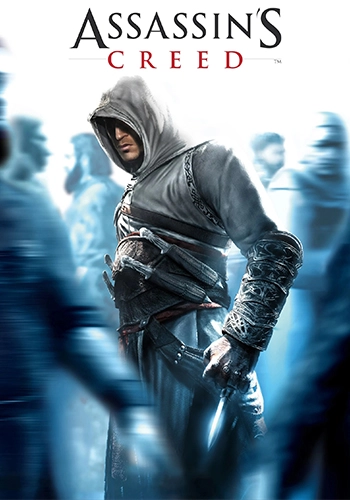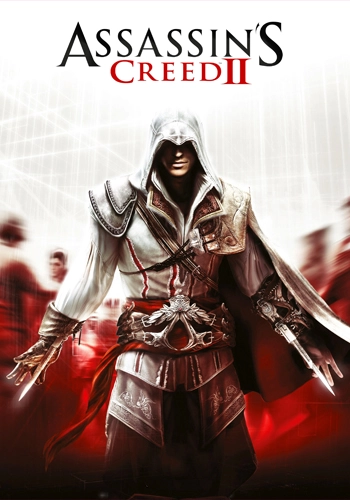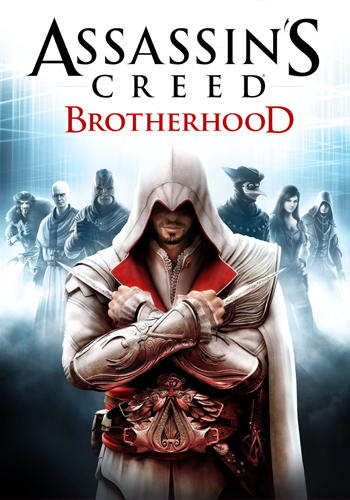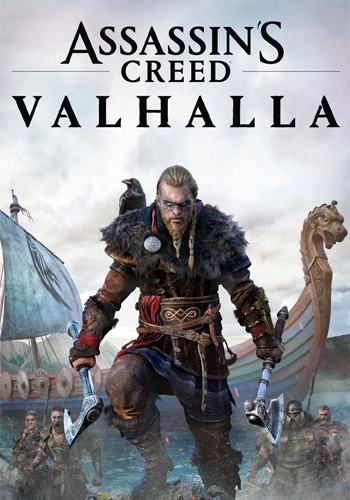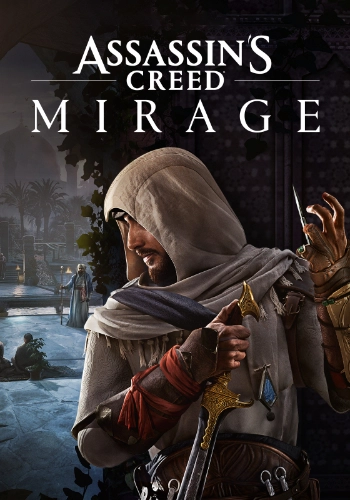Assassin’s Creed Valhalla
Assassin’s Creed Valhalla
Much Valhalla, little Assassin's Creed
For a long time, it seemed as if there were certain constants in the world: The sun moving from east to west, Bayern Munich becoming German football champions, Andreas Scheuer, the German minister of transport, still in office and an annual Assassin’s Creed, following the same well-trodden series paths as its predecessors. While most of these things are unlikely to change in the short term, at least with the latter, something new was dared in 2017 with Assassin’s Creed Origins ... only to quickly fall back into old patterns. Four years have passed since Ubisoft threw the old game principle overboard and rebuilt the game from the ground up. Gigantic open worlds, loot & level systems, skills & perks, quests and altogether less abstergo future clutter. Exciting approaches to breathe new life into the once great brand.
But old love never rusts, which is why Ubisoft quickly fell back into familiar patterns and released the epics set in ancient Greece Odyssee (2019) and most recently the Norman Viking saga Valhalla (2020) within a very short space of time. And after Odyssee Odyssey, I had actually given up on the Templar and Assassin brand. Because it was just incredibly boring. The brightly colored Greece with its islands separated by the Mediterranean was monotonous after just a few hours, and overpowered skills such as the Spartan kick and self-healing took the charm out of the battles. In the same way, the leveling opponents nipped any fun of getting better in the bud. And then there was also more abstergo and assassin stuff in the form of the protagonist Layla Hassan, in order to somehow spin an endlessly complicated plot about gods, cataclysms and reincarnations, which the story writers drove against the wall years ago with the death of Desmond. Of course, with enough background knowledge, it does somehow make sense, as various explanatory videos by people who have a complete grasp of the lore prove. But these are probably the same people who can tell you exactly how much money you owe them after 15 years. I don't need that for my life right now.
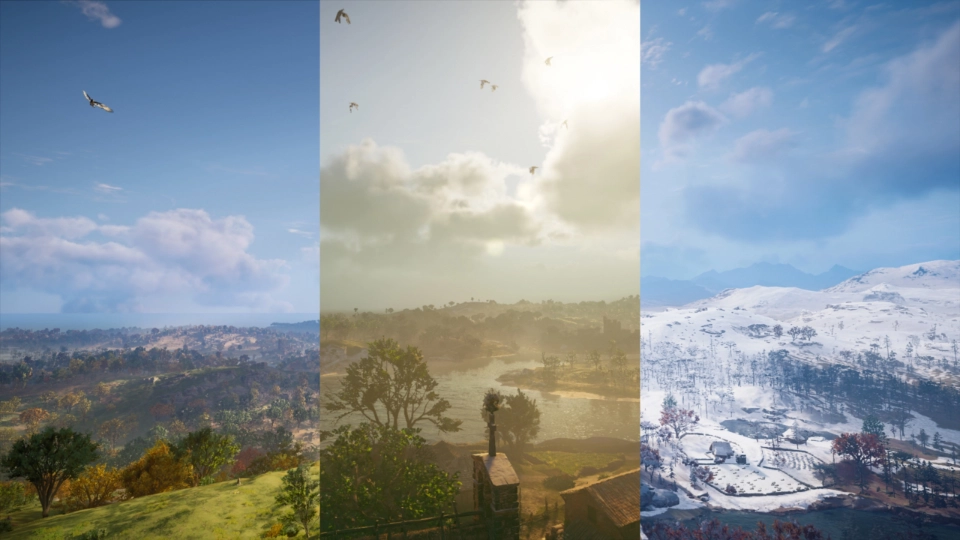
That was also my thought when I first received footage of Valhalla and was asked to edit it for an article during my internship at the RocketBeans. Even then, I noticed how repetitive the gameplay looked. Despite the advertised features such as siege battles, river raids and the usual hoopla, had hardly anything changed compared to Odyssee ? Was it going to be the same snore-fest as the story of Alexios and Kassandra? I didn't really want an answer to that until a friend picked up the game despite my warning and it just happened to be available. “Well”, I thought to myself, “at least you can rate music” - a credo that I still base too much of my free time on. Now, almost exactly 105 hours later, I've seen everything in East Anglia, Norway and Vinland (America), completed every mini-quest and cleared all the lands of secrets, artifacts and treasures. And I'm ready for a verdict I didn't expect: the game is playable. I'll explain what that means now.
Of Vikings and Welsh
Like the game, let's start at the very beginning with the story. After either Alexios or Kassandra reunite their family in the last Assassin’s Creed (oops, spoilers!), Valhalla decides to take the path that has already denied so many protagonists a happy childhood. We experience a fateful evening in the childhood of our youngster Eivor, whose gender we are once again free to choose. During a festival, our Viking village is attacked, mom and dad die and we are the only ones to survive the attack with Sigurd, a kind of older brother. So far, so cliché. Shortly afterwards, the game sets us out as adult Eivor (as in Odyssee , I chose the female protagonist) in icy Norway and lets us rescue the crew of our dragon boat a short badass interlude later. As in Odyssee , this allows us to explore the vastness of the oceans, even though we initially only travel through a few fjords worth seeing and past snow-capped mountains.
The story takes its usual course, we meet Sigurd's father and our adoptive father, Styrbjorn Sigvaldisson, the king of the Raven clan, who shortly afterwards submits to Harald Fairhair. The hot-tempered Eivor and especially Sigurd don't like this stretching of arms without a fight, which is why the two of them break away from him and set off for medieval eastern England with a loyal crew. There we try to expand our influence in East Anglia, which was still fragmented at the time and ruled by Danish and Saxon kings.
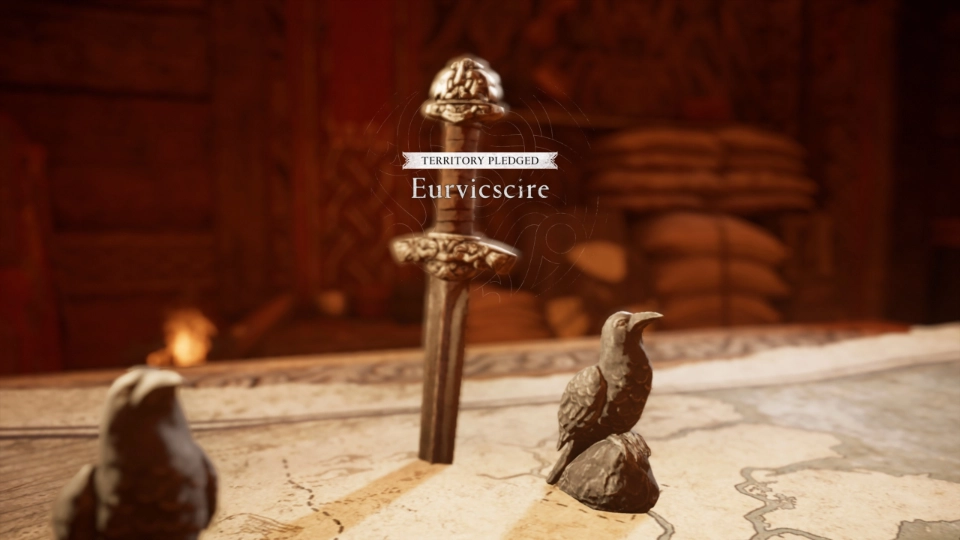
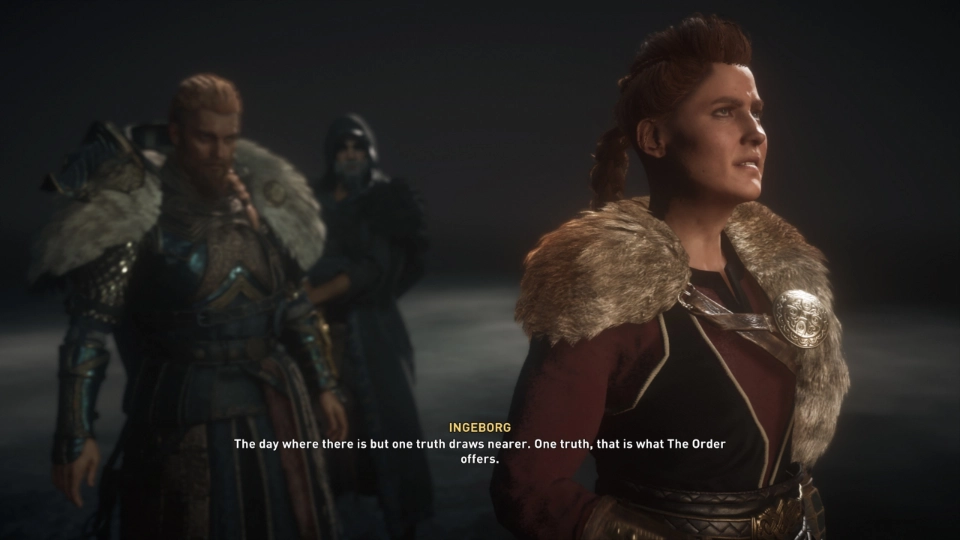
In terms of gameplay, we experience a storyline in each region, at the end of which we secure an ally for our clan. As usual in the Assassin’s Creed-series, we meet historical figures such as Oswald, Ceowulf II of Mercia and Aelfred the Great. But whoever can match all the names of the rulers and sovereigns in Valhalla to their role models will be my next phone joker. Back with Sigurd and Eivor, the game never tires of mentioning what a great friendship the two have. And after a short time, a prophecy confirms our pop-culture-fueled fears that this relationship will probably break up at some point. What a shame, they were so cute together.
Work hard, work hard, build a wee village!
In England, we can also marvel at the new features that distinguish Valhalla from Odyssee. First of all, there is now housing in the form of a village that we can upgrade with found building materials. In this case, upgrading means that we can build huts such as a merchant for hunting trophies, a tattoo artist for character personalization or a fishing hut to unlock the fishing skill. We usually find building materials through quests or on raids. However, as the number to be found is fixed, hard-working collectors cannot push the settlement to the highest level within a few hours, but can watch it grow gradually over the course of the story.
To ensure those who love collecting still get their money's worth, there are plenty of things to find alongside this uninspired pseudo-progress. As in its predecessors, the game world is divided into regions that show us how many treasures, quests and artifacts are still undiscovered. Thankfully, one of my biggest criticisms of Odyssee has been taken back and sectors are no longer limited by levels like in MMORPGs or Origins - probably a necessary evil for a role-playing game with level dynamics. Unlike its direct predecessor, the enemies always remain slightly below our skill level. So while in Greece you were always either outmatched or en par with the enemy, overleveled Free Husklars don't wipe the floor with the enemies in the starting areas, but they do enjoy a distinct advantage. Why there was no one-hit mechanic here apart from the familiar silent assassinations is beyond me. After all, it is still unsatisfactory to beat away an opponent's healthbar with three blows. And as a burly Viking with a two-handed axe in my hand, I can at least expect that the first hit won't invite to get up again any time soon.
Back to collecting. As already mentioned, we unlock merchants in our village where we can exchange loot for useful items. This is a well-meaning mechanic that is intended to pre-empt the disappointment of the previous games, in which finding yarn, animal innards and spinning tops hardly contributed to the motivation to explore. However, some of the combinations of animal claws, feathers and skins are so stupid that I only completed one (!) of the missions in my extensive 100% playthrough without any targeted hunting. And I'm only talking about hunting in the countryside here, don't even get me started on the fishing. Although, now that I think about it ... What kind of game developer has actually come up with the idea that fishing, the sport that makes chess seem extreme, is a fun game element? Let's be honest, I can think of 50 mini-games that are more fun than digitally watching a gill-breather commit suicide and then pulling it out of the water by frenetically mashing buttons same way every time. Nobody really needs crap like that, especially when it's necessary to complete some quests.
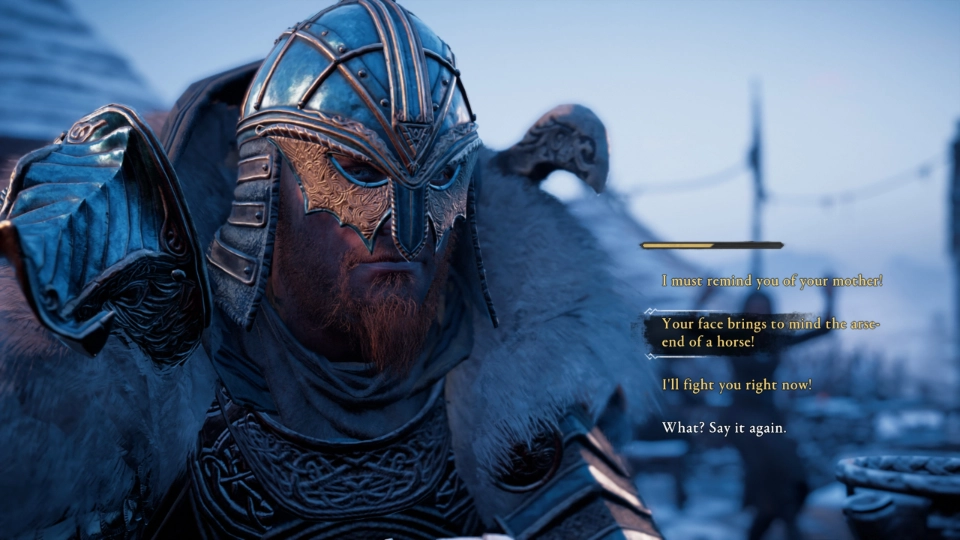
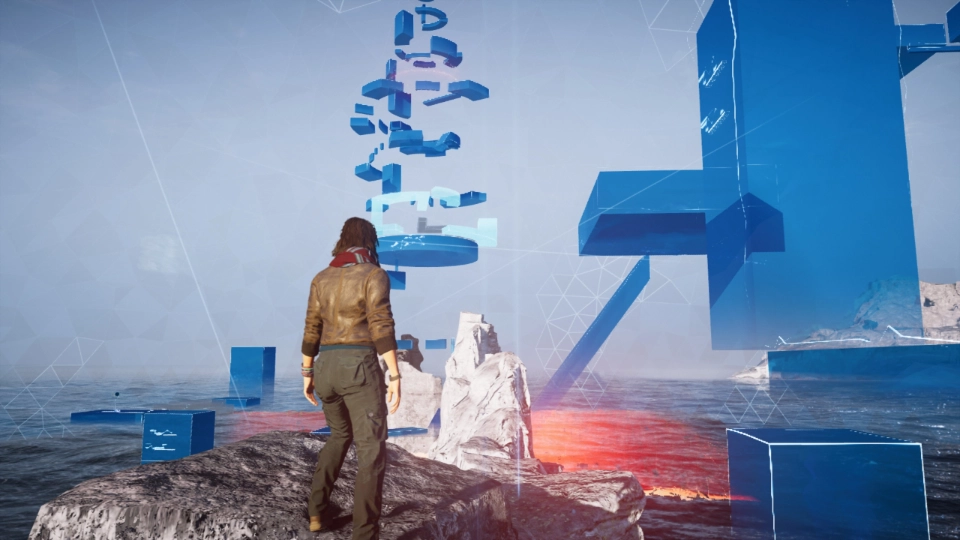
Did I say quests? Sorry, in Assassin’s Creed these are now called World Events. For the most part, they don't take themselves too seriously and vary in quality between 'give your interlocutor 10 silver' and sometimes creative stories with a hint of depth. For example, one by one we carry an obnoxious blind man up a mountain who hopes to be healed by the spring. A few meters further on, we come across another friendly but paralyzed hiker - it remains to be seen how they both got to the foot of the mountain. Once at the top, the pilgrims realize that they complete each other, and so the blind man carries the paralysed man. It's not Oscar-worthy, but it's a nice change from “Bring me 10 sackfuls of hair from mutant naked mole rats”.
Incidentally, my favorite quest was an old lady who asks us to fetch mementos from the grave of her deceased cat. But as the house is full of clutter, we first have to make our way through the darkness with our weapon. As soon as the first blow is struck, a cat flies dead into the corner with a hiss - oops! The woman's voice comes from outside: “Oh, my children are in there. I hope they're all right!” “Yes yes, everything's fine!” replies the embarrassed Eivor and continues to make his way to the objects. Even if we try, the only way to get the items is to force our way through by force of arms. When we finally have everything in our hands, the last kitten lies dead in the corner and we quickly say goodbye to our client. Unexpected gags like this are a welcome change, albeit rare.

Historical inaccuracies
Stop. Was he talking about a male Eivor earlier? Yes, because after a good 10 hours, despite generally very good voice acting, the English voice actress of the female Eivor got on my nerves to such an extent that I quickly changed gender ... in the game, that is. This time it's possible at any time, which I think is a good decision, but it also brings with it a problem that I think many current games are currently facing: Inclusion. Here's my unqualified opinion: not every character has to be bi. There, I've said it. I think it's good that we live in an enlightened age where homosexuality, equality and LGBTQ are no longer marginalized issues. It's also good that the binary male-female standard is being broken down in video games so that everyone feels appropriately represented.
Nevertheless, I am always very interested in a historically accurate portrayal of the past. I'm just as bothered by the fact that fire arrows are a thing and high-explosives are everywhere as I am by a fanatical Christian who we can romance as a male Eivor. Sure, in the end it's a work of fiction that is only skewed towards reality. And a gay Christian is still one of the realistic aspects in view of the recent headlines that have drawn attention to the Catholic Church. But I hope you get my point. It's another one of those generation no-decision-please-I-wanna-do-it-all things that doesn't fit a role-playing game. If you do X, you can't do Y anymore. That's the way it is ... never mind, I'm digressing.
I still have enough to write about anyway, even if I don't touch on any socially critical topics. And after much grumbling, I would like to emphasize something positive again. In Valhalla , this is definitely the game world. This gigantic and, in my opinion, too large depiction of medieval England is a real feast for the eyes for long stretches - at least the landscapes. The excursions into mystical Asgard, including Rainbow Bridge and Jotunheim, are just the tip of the eternal iceberg. When the clouds drift over the lush green fields of Wessex, we visit Hadrian's Wall in the Scottish north or explore the dark forests and expanses of Dartmoor, Valhalla plays with the atmospheric muscles, just as Origins did with the pyramids. There is no better and, above all, more comprehensive way to immerse yourself in historical England and bring back childhood memories of the TV shows like Mystik Knights . Unfortunately, this façade begins to crumble very quickly when people join in. Or not. While all kinds of livestock roam the pastures and fields, there is nothing going on on the streets outside the towns. When we do meet someone outside, it's either soldiers, bandits or quest givers. A really lively Middle Ages looks rather different. That's a shame, because some quests, such as a story section set during Halloween, give a nice insight into pagan rituals and the Christian contrast.
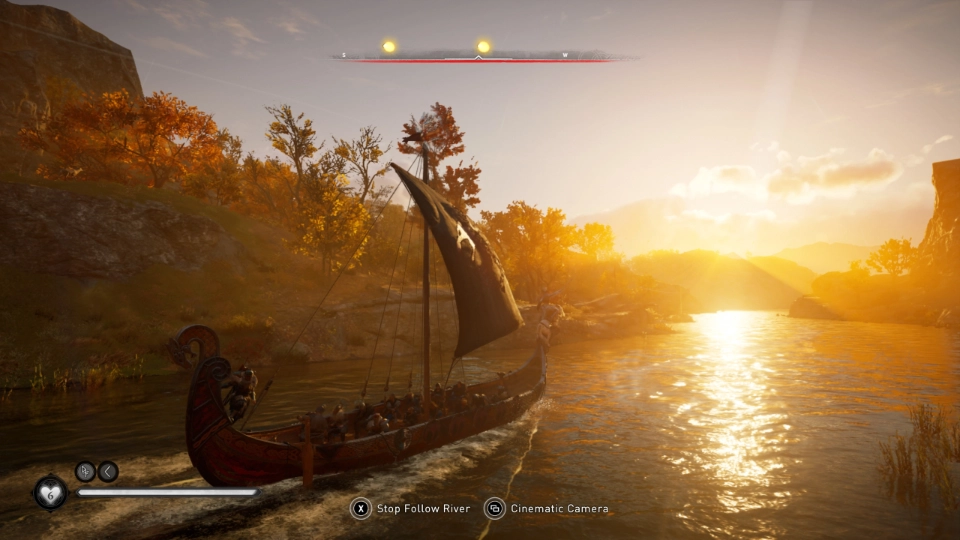
I, Eivor
Speaking of the enemies: They are pleasantly varied and offer different variations, ranging from the typical foot soldier to the crossbowman to the giant, goliath-like morning star wielder. Some of these require different approaches, but essentially it is mostly a case of countering or alternatively hammering away until the stamina runs out. The combat system is the same as in the previous game, only this time we can no longer heal ourselves with adrenaline points, but with so-called rations. Similar to Soulslikes, we only have a certain number of these on our Eivor - if they are used up, we have to go mushroom hunting or hope that the opponent goes belly up faster. To speed this up, our opponents once again have weak points that we can hit with a targeted arrow shot, which costs them a lot of stamina. Once this has been used up, we can perform painful and often fatal finishers.
Overall, the combat system is a little more fun than its predecessor, especially because the huge skill tree allows us to tailor our warrior more specifically to our preferred playstyle. In addition, some perks allow us even more creative freedom when trying them out. In Valhalla , for example, it is possible to wield almost any weapon in either the right or left hand. This leads to interesting combinations such as dagger and hammer, sword and shield or my favorite choice, axe and spear. But even combinations that initially seem absurd, such as shield and shield, are possible. In a later boss fight, we experience for ourselves that this tactic is perfectly valid.
In general, Valhalla is much more focused on personalization than its predecessors. Hairstyle, tattoos, the color of our boat and the appearance of our ship's crew - all of this can be customized. We also get a visual reflection of the improvement of our equipment, so that an endgame our Eivor also sparkles as they should. This can also be achieved using the in-game currency opals, which can be used to purchase weapons, companions and equipment, for example. We find and earn them from time to time through daily quests, which is why I ended up riding around on a winged steed as well as a hellhound one. A fair model of a largely cosmetic nature, through which interested players can either buy the desired bling bling or laboriously grind it out.
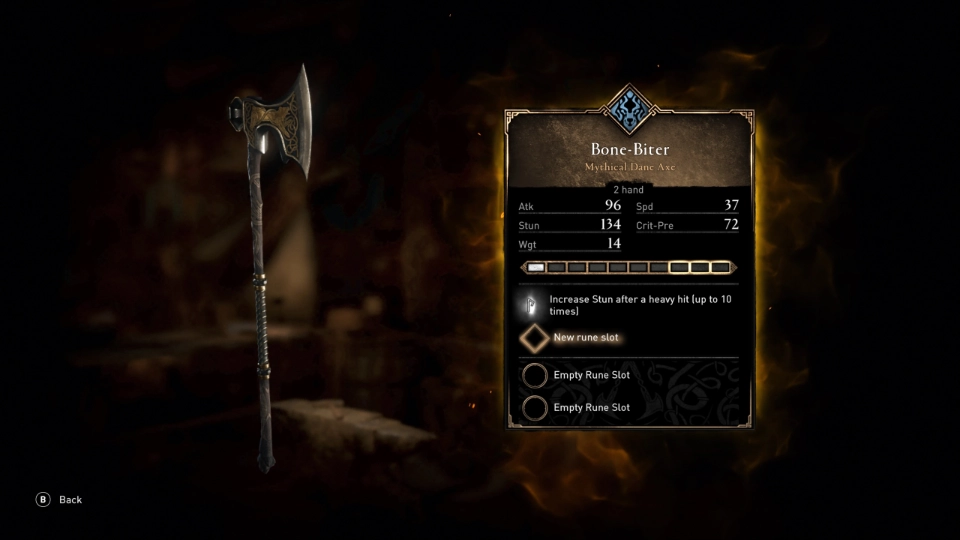
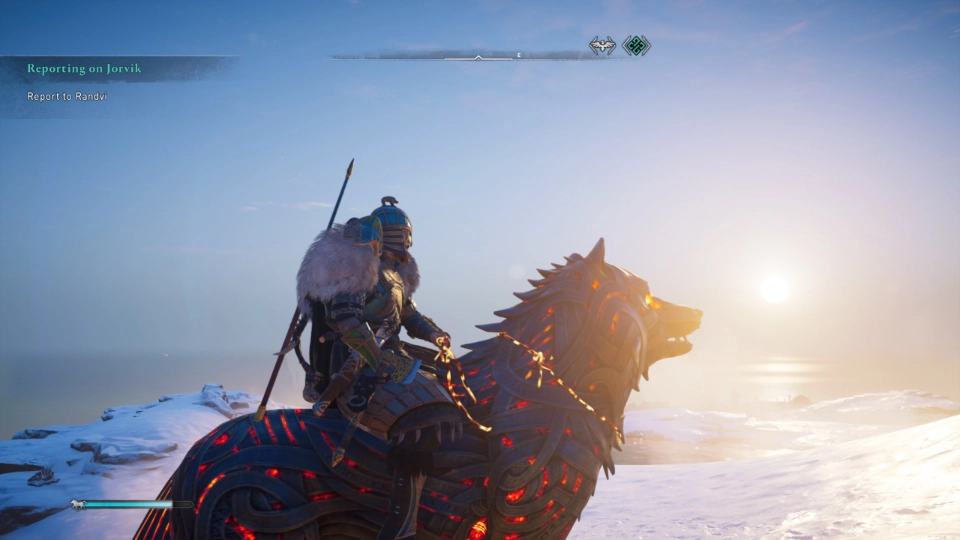
Boredoom
That's almost the end of my list of positive aspects - wait? What? There's more to come? I thought we'd be through soon! Yes, that's exactly what I thought at the end of Valhalla. And that brings us to the points that spoiled the experience for me. I think it can be broken down into a simple formula: Assassin’s Creed Valhalla is just too much for me. That sounds absurd and is complaining on a high level, after all, you'd rather get too much for your money than too little, right? Well, even a cinematic epic can become boring if the movie just doesn't want to end. An example: Blade Runner 2049, an impressive work that at some point just made me look at my watch. Lord of the Rings, whose extended cut I can watch several times, is a different story. A matter of taste without question, but for me Valhalla was more like the former. This is no doubt due to my style of play. However, wanting to open all the chests and collect flying tattoo paintings should not be an exclusion criterion for my opinion. Conversely, I played through The Witcher 3 with all add-ons at 100% and repeated the whole thing in the New Game Plus - and at no point did I feel the boredom that kept haunting me in Valhalla.
The size of the game world is the least of the problems, as it is varied and exciting enough to make traveling from A to B fun. Another point of criticism I had before playing the game turned out to be a blessing in disguise: The sea battles familiar from Odyssee have been completely scrapped. My initial outcry was that such an identity-forming aspect had been omitted, especially with a seafaring nation like the Norwegians as the protagonists. But if you'd had to manage a crew and upgrade the ship, my patience would have finally run out. Apparently the developers have also realized this, which is why the rudimentary management of our crew together with the associated river raids seems completely superfluous.
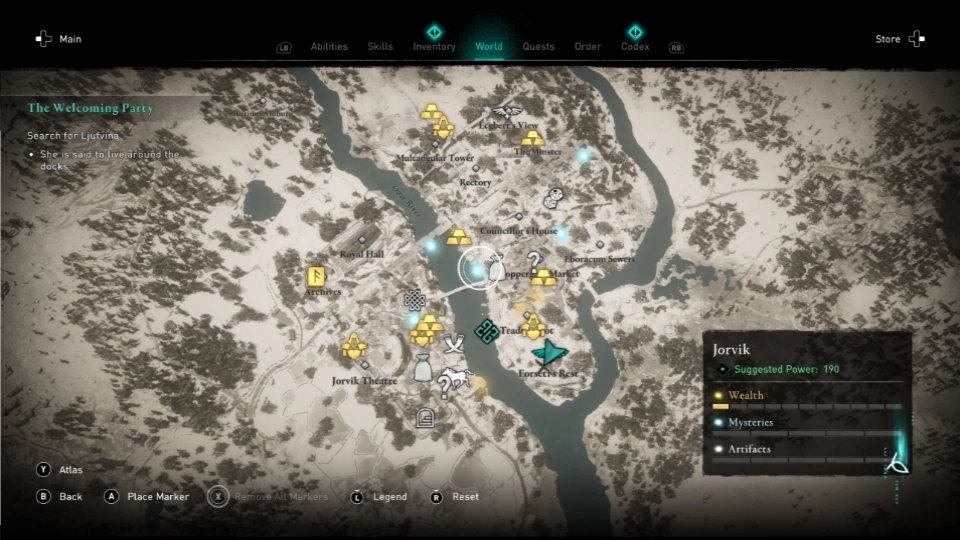
As it were, Valhalla repeats the same processes over and over again. Most of the houses that contain something worth stealing are barricaded from the inside with wooden beams. Why? Nobody knows. Apparently people used to barricade houses completely before leaving them with a burning fireplace. So it's not possible to get in. Our raven, which gives us a proverbial bird's eye view of the situation on the ground, is rarely really useful. This means that we either have to enter through an open window, shoot open a window or wooden paneling, shoot the beam of the door through an opening, shoot open the opening to shoot the beam away, push aside the platform in front of the opening to shoot the beam away ... or find a key. And sometimes this key is in another house, the entrance to which is blocked by a porous stone wall that we have to break open with an oil jug, which - you guessed it - is lying around somewhere, usually in another house. And that, of course, is also locked. At some point I knew every fucking building design in the game by heart and felt like an assembly line worker who only ran through the known points because I already knew that the door would be locked - why wouldn't it be?
Well, that's my own fault, of course. Why do I want to collect everything? I should just play the main story. I could indeed do that, the experience points from the main quests are more than enough, while side quests are only a small bonus. But why are these features in the game then? Why does the game offer me the chance to hunt if the game mechanics are so unplayable that I simply don't feel like shooting at fish and deer that magically move out of the cursor's field of fire? Why do I need conversation options if the last one always drives the story forward anyway and the previous ones are just banter? Why should I sneak through some levels when I can just as easily beat my way through without affecting the game in any way and even speeding it up?

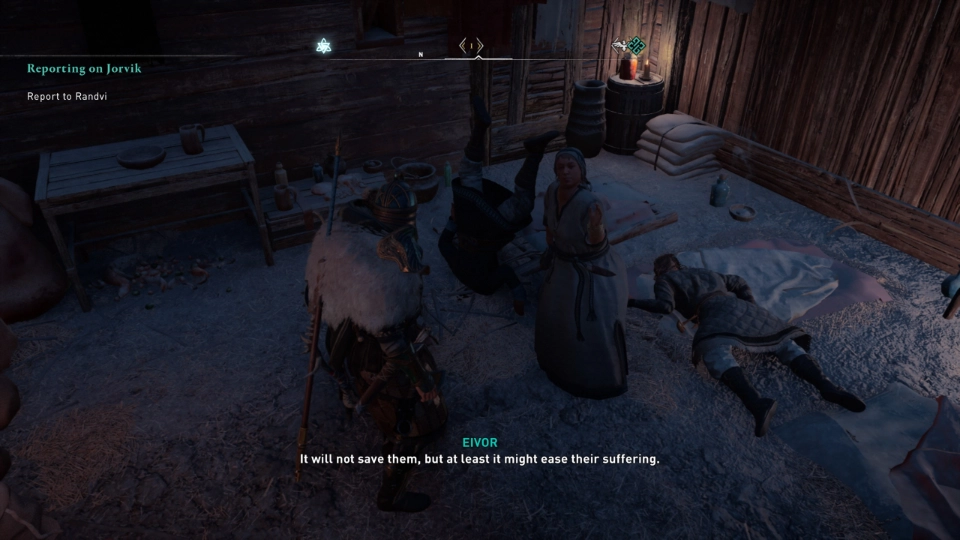
You can tell in so many places that they've taken a game concept that they still want to use the Assassin’s Creed name for, which is why they've kept signature features like assassination, climbing and the historical setting, but made much of it obsolete with the new gameplay. There are castles and towers everywhere, which we can climb just like before through a series of ledges, ladders and daring maneuvers. But I can just as easily climb up a wall stubbornly and save myself all the back and forth. After all, there is no stamina like in Breath of the Wild and the result is the same. At the same time, the game shows in many places that its innovations can also be entertaining. Most of the new mini-games are fun and rare enough not to be annoying: the Rapbattle-like Flyting is super simple, but makes for some nice word debates. The specially devised, optional board game Orlog follows the maxim easy to learn, easy to master. And stacking stones on top of each other with the cairns has an almost therapeutic effect if the whole tower doesn't collapse just before the end.
On the other hand, there are aspects such as the underused investigation of 'Crimescenes', where we simply have to click on points of interest and draw no conclusions. Or the pointless drinking game where you have to rhythmically press a button and move the analog stick every now and then. Fun! What I also encountered far too often were the bugs. I played Valhalla half a year after release, and still the game kept crashing, I had to reload or my character was shot halfway across the map into nirvana. None of this was earth-shattering, as the game constantly auto-saves, but for a triple-A title not published by CD Projekt Red, it was still rather unpleasant.
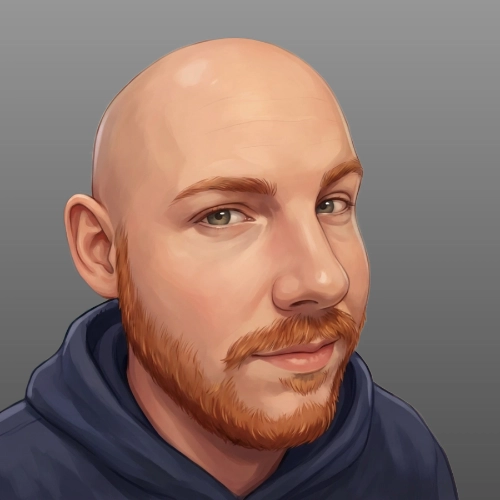
Bottom line
So, over 3000 words later, I now come to a conclusion that is more forgiving than you might initially think. Because I had a lot of anger towards Assassin’s Creed Valhalla, which I have given vent to in the points I have just meticulously worked through. And I haven't even finished writing everything down yet. Why is Eivor apparently an apnea diver and can hold his breath for minutes, making the oxygen display a farce? Why does the lighting sometimes go haywire, so that we can barely see a meter without a torch, but then there is enough light in the deepest cave systems for us to have problems falling asleep? Why is there no dynamic day/night change? Or more frequent weather phenomena such as rain, snow or fog? I've been told that the latter in particular is said to occur more frequently with the fish-and-chips faction. Why can't superfluous crafting materials such as ore or skins be sold, leaving you running around with a constantly clammy wallet? And the cardinal sin: Why aren't there more coats of arms and banners in a game set in the Middle Ages full of different princes, duchies and kings? Accurate heraldry is not easy, but all the foot soldiers in the same colors are an absolute mood killer.
Many things don't seem well thought out and make the moments of brilliance shine less powerfully. When we storm a fortress together with our men during a siege battle, razing the gate, pushing men off the walls and the sky turns blood red in the glow of the fire, it creates the kind of atmosphere I would like to see in a Viking adventure. But the game throws obstacles in its own way with its own gameplay. If you want to, you can speedrun many missions by effortlessly climbing steep walls, running past enemies and simply checking off checkpoints, because there are no penalties. It is the Assassin’s Creed, in which I felt the least like an Assassin. I didn't need the familiar hiding and diving mechanics once; after all, hitting and running away work equally well. In terms of the Norman narrative, this may seem coherent for an Eivor who prefers to carry his hidden blade visibly on the back of his arm. But it doesn't fit with the eponymous assassin creed or the game series.
The fact that the game principle that Valhalla, Odyssee and Origins threw over the crusty series can work is proven not least by Immortals Fenyx Rising, in which Ubisoft pulls the same strings. With Valhalla , they've adapted a few key criticisms from the predecessors and actually made the game the best part of the remakes - as long as you focus solely on the story and ignore a lot of the sidequests. However, this hybrid is slowly reaching its limits and, for me, will never reach the heights of an Assassin’s Creed II oder Black Flag erreichen. Diese Spiele haben sich auf ihr inhärentes Kernprinzip fokussiert, auf das, was sie gut konnten. Valhalla can look good and tell stories. Everything around it falls significantly short. That's why I think developers need to be clear about what they want in the future. Unfortunately, the sales success and the ratings continue to prove them right. But like a car that you plan to convert into a boat, in the end the question is: do I want something that drives on the road or something that I can chug through the sea in? One is the Assassin’s Creed-DNA, the other is the open-world epic. And if you opt for the sea, there's one vehicle that lends itself particularly well to this ... and it has no wheels.

